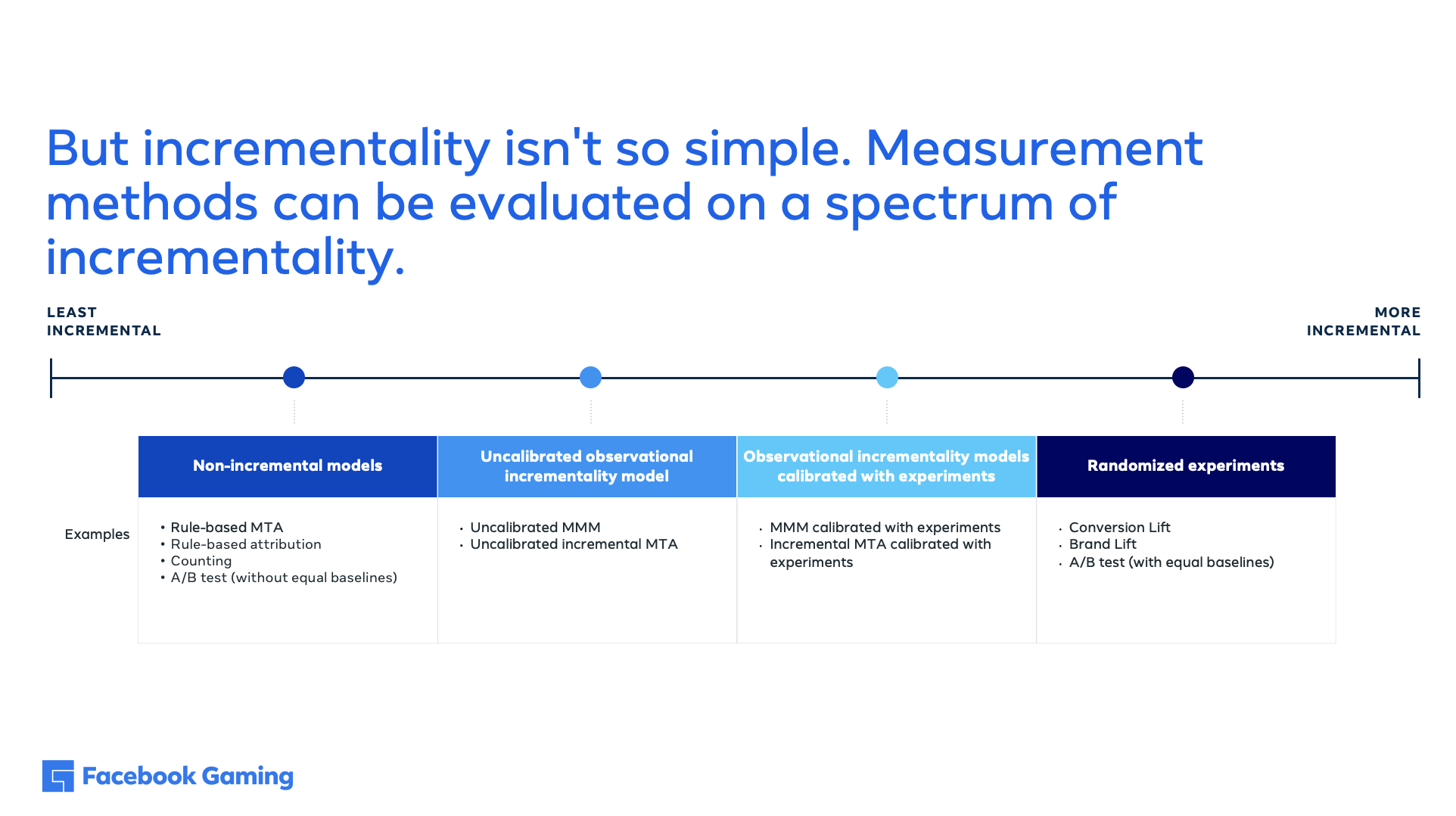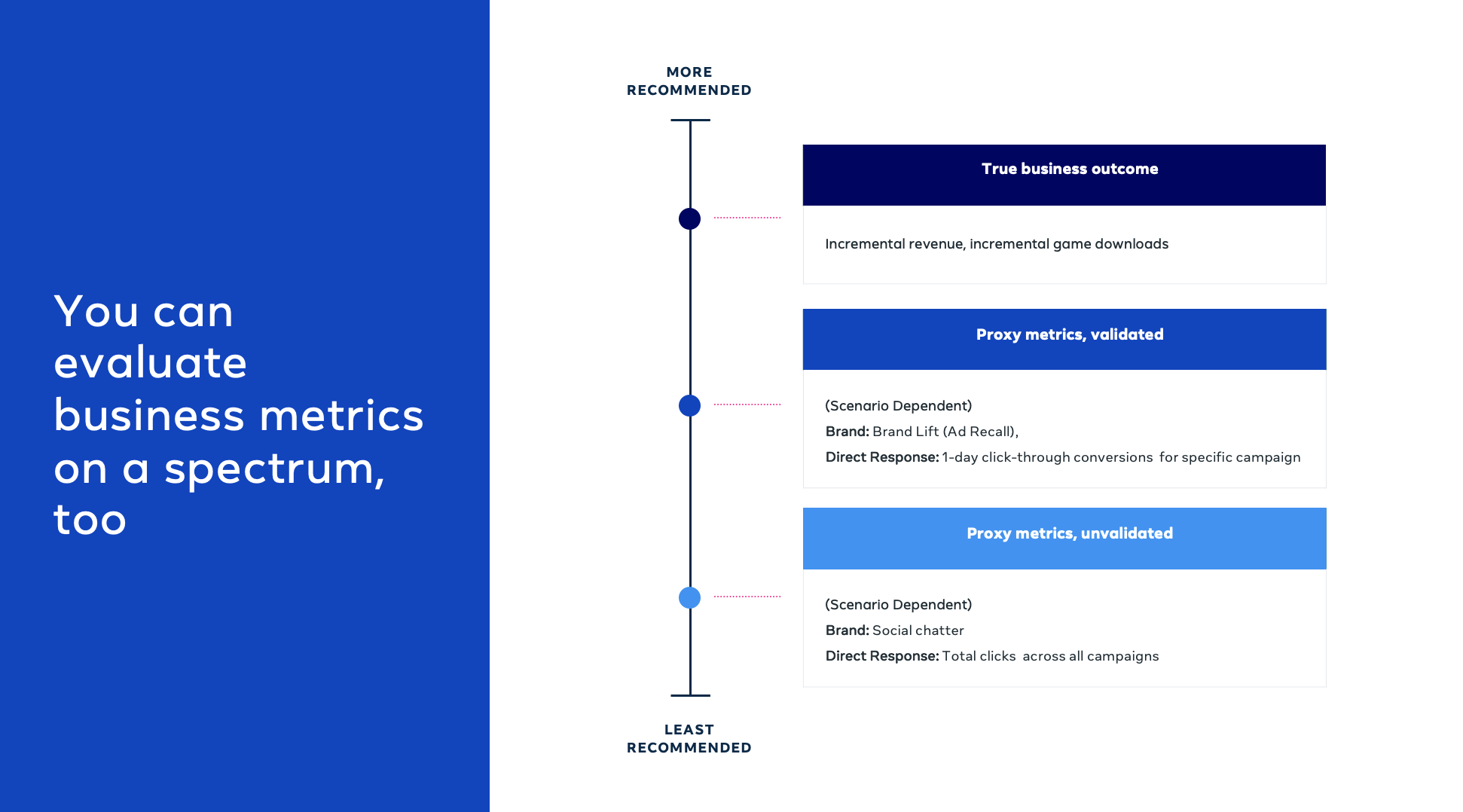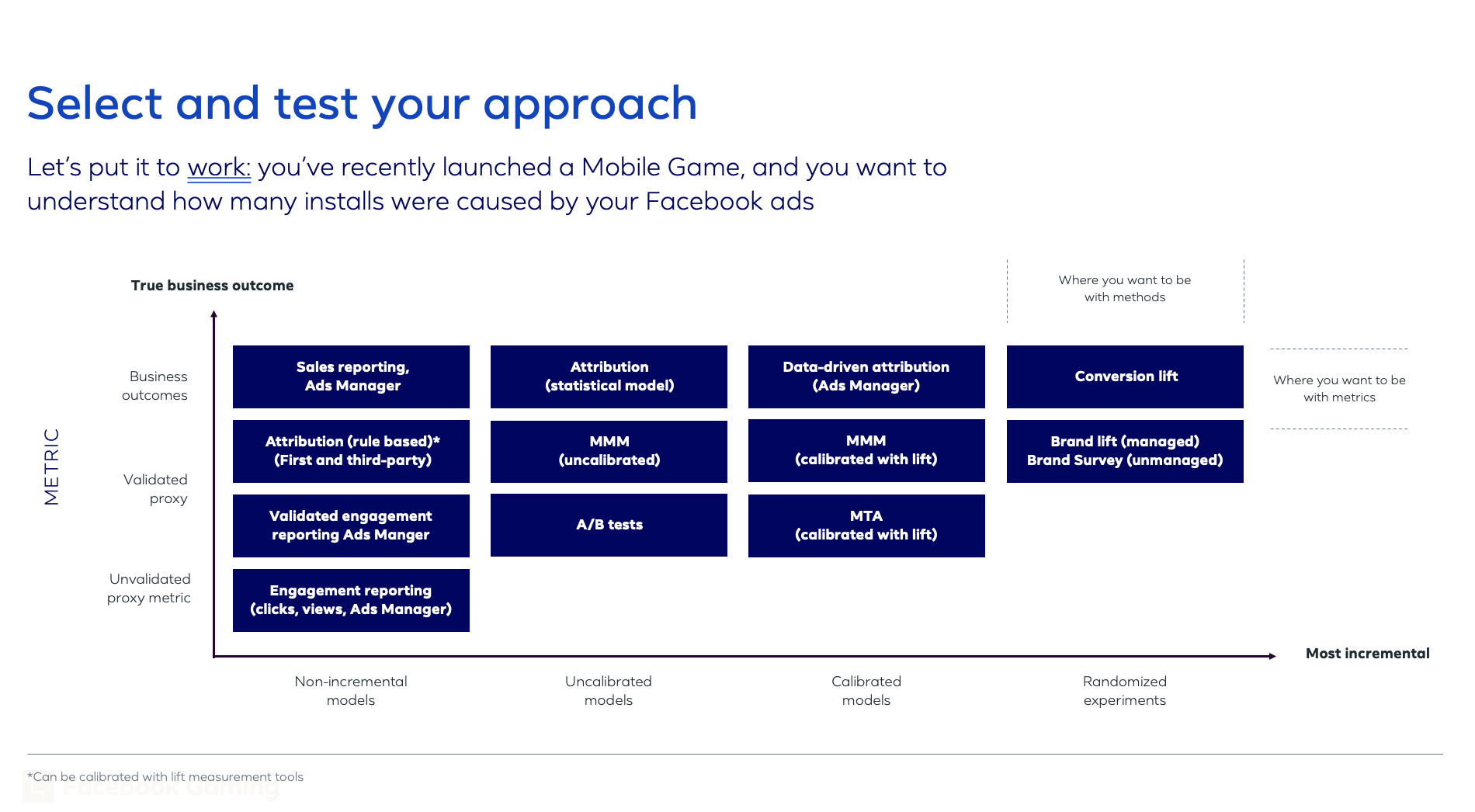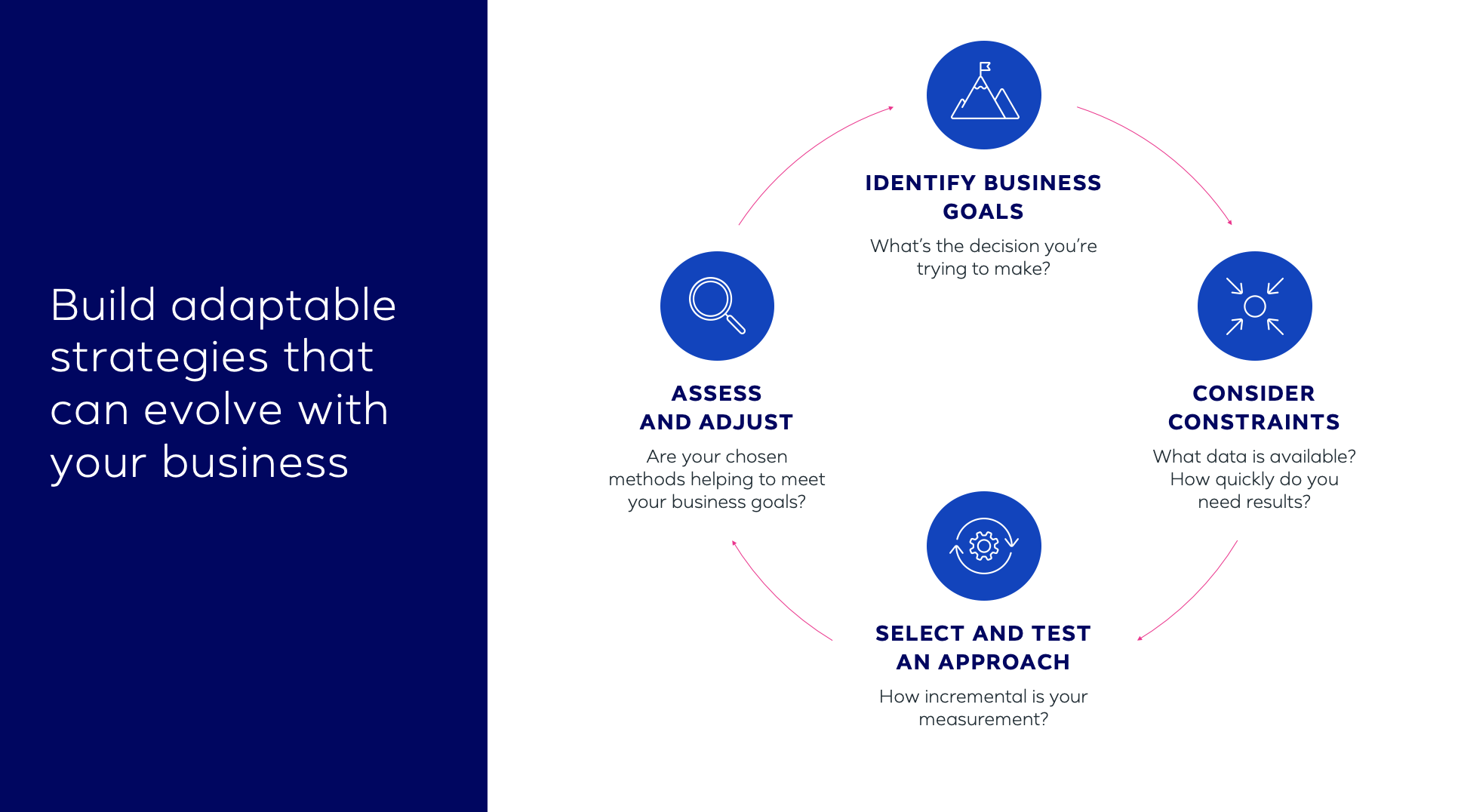
As we move to a more privacy-conscious world, gaming marketers may experience changes in the ability to measure campaigns. Anticipating those changes and being able to quickly adapt will enable you to continue making good marketing decisions.
These changes are all part of a larger story–people are concerned about privacy. A 2019 survey showed 84% of consumers care about privacy and want more control over how their data is being used.
As a result, the ads and measurement ecosystem is evolving. For example, mechanisms like mobile device identifiers that rely on passive data collection are becoming less available, meaning advertisers are adapting and thinking differently about the data that they use for advertising.
Good measurement has become especially difficult because as we are moving through a more complex, digital-first, multi-screen, multi-device world. The list of available metrics and measurement tools has grown, and advertisers can struggle to build strategies that accurately measure their campaigns. This means today, measurement solutions and tools often deliver insights not clearly related to your business goals, or use techniques like last-click attribution that can provide a skewed picture of which campaigns and channels are adding true value.
While there is no foolproof measurement framework for addressing ecosystem changes, there are steps you can take to understand their impact and prepare for the future.
A key approach is Marketing Mix Modeling (MMM), which has been used for many years across traditional verticals to quantify the ROI / ROAS of marketing across channels, and is now being adopted by digital first advertisers in the Disruptor and Gaming verticals. MMM is built on aggregated data, typically in a form of time series, meaning it doesn’t rely on user-level information that is impacted by ecosystem changes. It’s a future-proofed technique that can be leveraged to move advertisers towards incremental measurement in a privacy-first way. MMM is also metric-agnostic and the methodology can be used to understand the impact of marketing activity on any business metrics that could potentially be influenced. These could include Installs, Purchases, Revenue, Free Trials, Subscriptions or even Lifetime Value (LTV).
Geo-testing experiments are also highly effective and rely on aggregate geo-level data to compare test and control markets and measure incremental performance due to ad exposure. Meaning they don’t rely on user-level data impacted by privacy changes.
If they haven’t already started on this journey, Gaming advertisers should think about anchoring their measurement strategy on incremental business value. This leads to more precise insights, allowing us to make better marketing decisions.
Incrementality is the degree to which a measurement method estimates the true causal effect of an isolated marketing activity–in other words, it separates out how many of your installs, deposits, and purchases happened as a direct result of your marketing from those that would have happened anyway.
Understanding this incremental value is important because a marketer’s ability to make the most efficient marketing decision possible has a measurable impact. According to our research, almost 25% of the time non-incremental and incremental measurement disagree on a winning marketing tactic. When marketers choose the wrong tactic as a result, businesses lose out on an average 64% improvement in cost-per-action (CPA).
When done best, incrementality is an experimentation-focused approach. Experiments are the “gold standard” for measuring incremental business value, but we know they’re not practical in every scenario. If you can’t run an experiment, you can ensure your methods are as close to measuring incrementality as possible. Think about metrics on a spectrum non-incremental to incremental, moving from rule-based attribution or simple counts all the way to randomised control trials (RCT). The closer you can get to experiments, the better off you are, but there are many valuable methods available before you get there.

But it’s not only the method that matters, it’s also the metric. To inform business decisions, we recommend measuring true business outcomes (i.e. incremental purchases, revenue, or installs) as they can more closely reflect a business’ bottom line.
As with experiments, this might not always be possible, but getting as close to the top of that spectrum is the goal.

Pulling it all together, you can select the best available incremental measurement by evaluating both the incrementality of the method and the incrementality of the metric you’re measuring.

While the measurement ecosystem may be changing, you can build an adaptable measurement strategy that integrates your learnings, leading to the next decision and inspiring new business goals. Remember:

Different tools can be used to answer different questions; it’s about finding the right one to suit each particular job, within your constraints. That could mean using simple A/B tests to answer quick questions, like “which version of my creative works best?” Experiments might work best as you make strategic decisions around the incremental contribution of Retargeting-versus-Acquisition campaigns, or a new creative strategy using upper funnel creatives or influencers. It could be working with an Attribution provider for day-to-day performance tracking and decision making. Looking more broadly at budget allocation across and within channels, MMM might offer the best trade-off of insights & speed if it’s informing large strategic decisions and not day to day tracking.

Finally, assess and adjust: are you accessing the insights you need to make a decision, and guide you toward a new question or goal? Your strategy should integrate your learnings, leading to the next decision and inspire new business goals.
To find out more about how Facebook Gaming can help you to measure the performance of your campaigns and achieve your business goals, please visit fb.gg/marketers.
About the Authors:
Rory Donegan joined Facebook’s EMEA Gaming team as a Marketing Science Partner in 2019, to promote better measurement across the industry. He spent the previous 7 years building MMM programs across EMEA as a Director at an analytics consultancy, helping advertisers measure & improve their marketing strategy.
Sharad Jaiswal is a curious person who has always been in love with maths and how it applies to everything in the universe. He finds great energy where he engages in its application through data analytics to empower businesses to answer difficult questions and drive growth. Sharad has spent the last 12 years answering those questions through data and empowered businesses across different industries. Gaming is Sharad’s new stop, and in his current role at Facebook, He is building advanced data-driven marketing & measurement strategies for leading gaming companies to thrive and grow in a changing privacy-first world.
 GameDaily.biz © 2026 | All Rights Reserved.
GameDaily.biz © 2026 | All Rights Reserved.